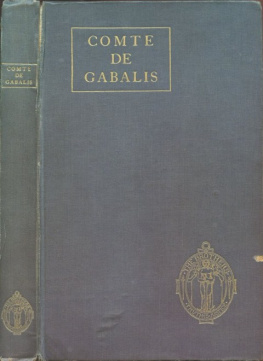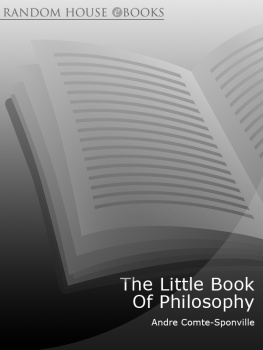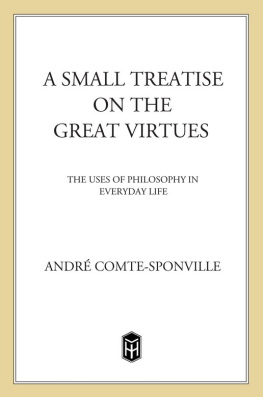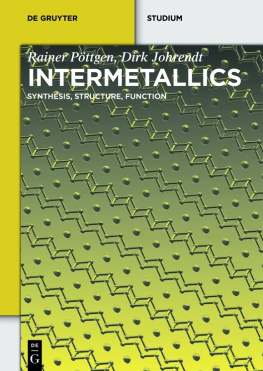
The Comte De Gabalis By Abb N. de Montfaucon de Villars
THE BOOK
Across the title page of the first edition of Comte de Gabalis, published at Paris in the year 1670, runs the cryptic phrase from Tertullian "Quod tanto impendio absconditur etiam solummodo demonstrare destruere est," [ When a thing is hidden away with so much pains merely to reveal it is to destroy it,] suggesting to the mind that there is a concealed mystery. Hungry souls, heeding these words, have sought and found beneath the esprit and sparkle of its pages a clue to that truth which all the world is seeking.
Many readers will recall Sir Edward Lytton's citation of Comte de Gabalis in his strange novel Zanoni, certain portions of which were based upon this source. And others will remember the high esteem in which the wit and wisdom of the Abb de Villars' masterpiece were held by litterateurs, as well as occultists, in the early years of the 18th century. Alexander Pope, in his dedication to the Rape of the Lock, the first draft of which was written in 1711, says "The Rosicrucians are a people I must bring you acquainted with. The best account I know of them is in a French book call'd Le Comte de Gabalis, which both in its title and size is so like a Novel, that many of the Fair Sex have read it for one by mistake. According to these Gentlemen, the four Elements are inhabited by Spirits, which they call Sylphs, Gnomes, Nymphs, and Salamanders. The Gnomes or Demons of Earth delight in mischief; but the Sylphs, whose habitation is in the Air, are the best-condition'd Creatures imaginable. For they say, any mortals may enjoy the most intimate familiarities with these gentle Spirits, upon a condition very easy to all true Adepts, an inviolate preservation of Chastity."
Alexander Pope's poem bears the same relation to its inspiration Comte de Gabalis, that a dancing mote does to the sunbeam whose brilliance it reflects. For the reader of to-day this light shines, as it were, through a window fashioned in an alien age, and mullioned with a frankness of speech almost unknown in this century of conventional circumlocutions. To throw a stone at the window were ungrateful. Rather let the reader view these Discourses with sympathetic understanding of the thought of the period in which they were written. Let him regard not their letter but their word, and so justify our belief that years are past in which to point out spiritual worth wherever found is to compass its destruction, and that the day has come when we should seek to unlock the treasure of this ancient volume with a key fashioned from the Philosopher's Stone.

The Comte De Gabalis By Abb N. de Montfaucon de Villars
ABB N. DE MONTFAUCON DE VILLARS
Before the Abb de Villars met the Comte, he had been prepared for a work which has insured him the gratitude and reverence of those seekers for truth who have followed in his footsteps. May we, to-day, be as humble servants of that great ideal to which he dedicated himself, and which he set forth in a life of action and noble endurance. N. de Montfaucon de Villars was born in the diocese of Alet, near Toulouse, in the year 1635. He was a member of the very ancient family of the Canillac-Villars, being a grandson of Jean Franois de Montfaucon de Roquetaillade Canillac-Villars, and a nephew of the celebrated and learned Benedictine father, Bernard de Montfaucon of Saint Maur.
Having taken orders, he came to Paris in the year 1667 with the intention of advancing himself through preaching, and fired with that enthusiasm which the country brings to the city, hoped for a brilliant career. The Abb's wit, eloquence, and quiet demeanour charmed all with whom he was brought into contact, and he soon gained many illustrious friends, entr into the most exclusive circles, won the esteem of Madame de Svign, and became the centre of a coterie of beaux esprits who were in the habit of meeting at the Porte Richelieu. He awakened a desire for truth in the jaded though brilliant minds of that effete period, and sought to turn them from their chief consideration, the degradation of the times, by pointing out the possibility of regeneration, doing much to elevate the thoughts of all who came under the sway of his gentle and persuasive influence.
The Abb de Villars was an earnest worker for the cause of liberty and religious tolerance, and the author of several books and pamphlets, some of which remain to be discovered. One of these, on the origin of species, inspired Jean-Baptiste Lamarck, whose writings stimulated Darwin in his quest, and who was the real father of the modern doctrine of biological evolution. Few of the works to-day attributed to the Abb were written by him. They are forgeries contrived, as are the sequels and interpolations in the later editions of Comte de Gabalis itself, by those who feared and sought to nullify the profound influence which this book exercised over the minds and imaginations of its readers. For there were those who regarded the truth which it embodies as unorthodox and harmful to the temporal authority of the church.
To a politico-religious source may therefore be ascribed the ingenious fiction that Comte de Gabalis is a direct translation of an Italian book La Chiave del Gabinetto, by Gioseppe Borri, published in 1681, eleven years after the appearance of the first edition of these Discourses. Thoughtful comparison of La Chiave del Gabinetto, with the contemporary French and English editions of Comte de Gabalis reveals the fact that the Italian book is but a faulty translation and expansion of the former, masquerading under the guise of letters dated from Copenhagen in 1666, which imaginary date was employed to lend colour to its pretension to priority, and to cast discredit upon the Abb's book.
The pleasure loving spirit of this brilliant preacher was latterly beclouded by the loss of his friends, consequent upon the persecutions of the church which forbade him the pulpit and forced him to withdraw his publications. The Abb de Villars is supposed to have been assassinated while on a journey to Lyons in the year 1673. Like many of his Craft, however, his true place of burial is unknown. "Perhaps he only pretended to die, as is the way of Philosophers who feign death in one place only to transplant themselves to another." May the soul of this great disciple of a great Master be now in the presence of God.

The Comte De Gabalis By Abb N. de Montfaucon de Villars
DISCOURSE I

MAY the soul of the Comte de GABALIS so decreed in his testament, an avenging angel has never failed promptly to wring the necks of all who have indiscreetly revealed the Philosophic Mysteries.
But let them not condemn this learned man thus hastily, without having received an explanation of his conduct. He revealed all to me, it is true, tut he did so only with the utmost cabalistic circumspection. It is necessary to pay his memory the tribute of stating that he was a great zealot for the Religion of his Fathers the Philosophers, and that he would rather have gone through fire than have profaned its sanctity by taking into his confidence any unworthy prince, or ambitious or immoral man, three types of persons excommunicated for all time by the Sages. Happily I am not a prince, I have but little ambition, and you will presently see that I have even a trifle more chastity than is requisite for a Philosopher.
Next page











